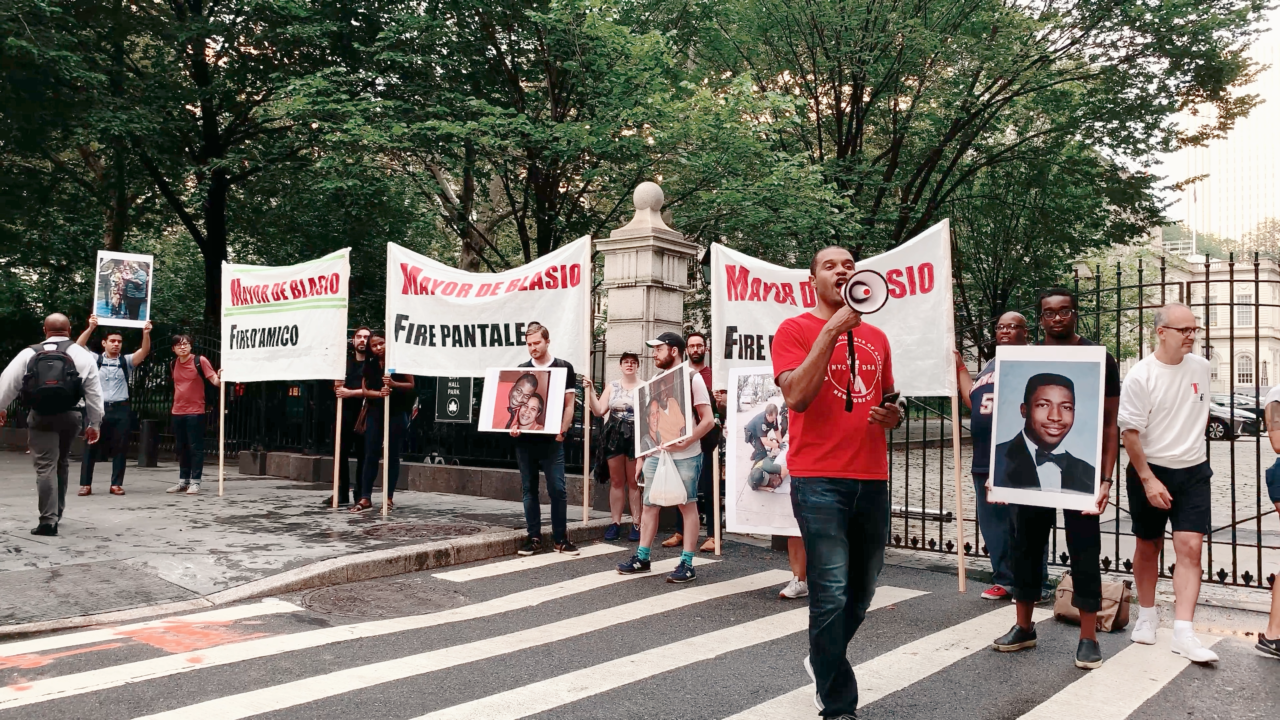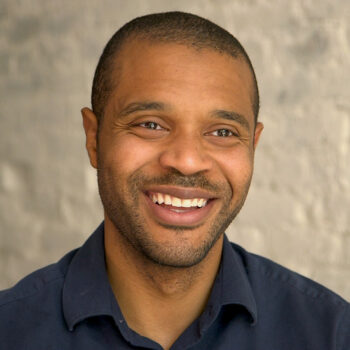A little over four years ago, what is now the largest chapter of the largest socialist organization in the nation — the New York City chapter of the Democratic Socialists of America — was holding meetings of fewer than thirty active members in a Brooklyn classroom. Since then, the chapter has helped win major changes in New York City school suspension practices, reforms to the NYPD, and the most progressive housing legislation in the state in a generation. The chapter has also helped launch the political careers of Representative Alexandria Ocasio-Cortez and five New York State legislators, including myself. More importantly, we’ve become a massive movement of working-class people developing the skills it takes to win long-term change.
DSA is a complex, multi-faceted organization built around a single, simple idea: that socialism is a better system than the one we currently live under — more just, more compassionate, more pleasant, and more efficient. Socialism is about valuing people over profit, solidarity over competition, empowerment over oppression, and equity over injustice. The special sauce to DSA’s rise over the past four years has arguably been in learning to organize not only in support of those values but also in accordance with those values. Attempting to live our values in spite of our internalized capitalist, patriarchal, white-supremacist norms has been a challenging, messy, and deeply exciting process.
When I walked into my first DSA meeting two months after Donald Trump’s election, the group was still using the tiny Brooklyn preschool as a meeting space, but attendance had already begun to swell. Instead of thirty chairs in a circle, the space was packed with people. There was a kind of electricity in the air, like everyone knew we were on the edge of something massive.
The energy in the room easily could have lent itself to hours spent railing aimlessly against Trump and the status quo — but it didn’t. Facilitators engaged with the high energy through break-outs and occasional chants but also kept things on track with an agenda designed to help us develop actionable plans, including detailed proposals to form two new working groups — an eco-socialist group and an electoral group. Both were debated and then voted into existence.
The working groups are a way for us to plug into organizing on the issues that we’re most passionate about or through the tactics we’re best suited to while still building a broad-based organization. They also keep our organizing centered on bread-and-butter issues and away from theoretical debates.
There is a very real tendency in some socialist circles to think and talk and read about socialism without actively working to build it. Theory can be important, but it isn’t solidarity; solidarity requires action. It was a relief to find, in that first meeting I attended, a sincere effort to take action and to base those actions on the material conditions we were facing.
This proved especially important in trying to account for the demographic disparities between who was in the room (disproportionately white, downwardly mobile millennial men) and who was not. In one instance early on, the Housing Working Group attempted to redress these disparities by moving their meeting to a low-income part of Crown Heights. The result was a room of people who were mostly white in a neighborhood of people who were mostly Black. It was the actual campaign we were working on — to stop the sale and luxury development of a publicly-owned building called the Bedford Union Armory — that ultimately brought in more people of color living in Crown Heights. Meeting the practical fear of gentrification with real-world solidarity in the form of a concrete, local, hyper-specific campaign to fight it made engaging with socialism compelling to more people.
So it felt like a no-brainer to form an eco-socialist working group, which could fight the devastating environmental havoc that corporations have inflicted on working class neighborhoods like mine. Forming the electoral working group, on the other hand, was a lot less straightforward. For one thing, at the time, the vast majority of New Yorkers still balked at the term “socialist,” so the electoral path seemed like a long shot. We also had to contend with the fact that the legislative system is so heavily weighted toward incumbents that a traditional rubber-stamp endorsement would leave little room to hold electeds accountable even if we did win. Perhaps most damning of all, getting a socialist elected to office has no immediate impact on our material conditions. We would have to radically rethink standard approaches to electoral organizing to make this a worthwhile strategy for us.
In a traditional campaign, well-connected candidates focus their energies on fundraising from large donors so they can hire a sizable staff. Organizations who endorse the candidate send volunteers for the campaigns to use as they see fit. As a result, the power and know-how remain with the candidate and their own network, and the big-dollar donors remain more vital to the candidate’s future success than the volunteers are. Our approach was to power campaigns ourselves with an army of trained organizers (nearly all of them volunteers) rather than a base of corporate funders; in doing so, we believed we would be much better positioned to hold elected officials accountable. More importantly, by undermining the leverage of wealthy donors, we could build electoral campaigns that centered on, and brought attention to, our issue-based campaigns.
After careful consideration, we voted to form the electoral working group. We divided up into teams to take on the new and overwhelming task of running socialist candidates for office. Initially, there was a candidate recruitment team, a data team, and a field team. Field work would eventually become an established cornerstone of DSA campaigning, but the first time the electoral field team met, only five people showed up.
Initially, we focused on recruiting canvassers and teaching people how to canvass. In hindsight, this mode of operating was still rooted in the capitalist campaign models we were trying to avoid. It was effectively an in-house replication of what we were used to. The corporatization of American politics has meant that only the select few who have the freedom and flexibility to quit their job and work on a campaign full time have any say in how things are run, while everyone else is expected to follow along. To canvass like socialists, we had to start thinking of every person who showed up as being one canvass away from leading a canvass themselves (even if we didn’t yet have enough members to come to those canvasses). In other words, we had to build systems that actively engaged with everyone’s capacity to be an organizer. After all, socialism works well because it empowers everyone, not just a select few.
We pivoted from pure canvass trainings to “train the trainers” and skill shares focused on developing best practices for things like getting people excited to canvass, decreasing the rate of no-shows, making sure canvassers felt safe and supported, and talking to canvassers about becoming leads. Putting control over individual canvasses into more people’s hands meant more people felt ownership over the canvasses. It was a little change with a snowballing impact; those leading their own canvass brought in their friends and neighbors, and suddenly we had exponentially more canvassers, more leads, and more capacity in general.
Another reason this was an important move towards a more socialist mode of organizing is that it undermined a big dividing line between those who seek out activist work and those who don’t. There is a kind of privilege in believing you can make change happen — to believe not only that change is possible but that you, as an individual, have enough power to make a difference. That, as much as anything, determines who shows up and who doesn’t. But when a friend, neighbor, or coworker says, “I think I have power, and I think you have power too,” that belief becomes an inch more accessible. For some people, that inch makes all the difference.
Once someone has shown up, however, a dividing line still exists between those who will seek out leadership and those who won’t. Proactively asking every canvasser to lead doesn’t eliminate that dividing line but it does help mitigate its effects — enabling a bigger, more diverse body of leaders and a more equitable distribution of power.
So our ground game grew, not only in the electoral working group but in the issue-based working groups as well. And while each working group had its own campaign, the fact that we had a unifying long-term goal of winning a socialist future made it easier to work in solidarity across the expanding organization. By focusing on the potential for collaboration between working groups instead of worrying that one would pull organizers and resources away from another, we demonstrated that organizing is not a zero-sum game. The Housing Working Group knocked on doors ostensibly to talk about my campaign for City Council — and used it as an entry point to talk about our campaign to stop the sale of the Bedford Union Armory. When I was arrested at a protest for that campaign, the fact that I was a City Council candidate helped bring attention to the issue.
We ultimately lost both of those campaigns: we didn’t stop the sale of the Bedford Union Armory, and I didn’t get elected to the City Council. But we did something arguably more important: we built a base. Not just a base of angry people willing to show up to a protest when called upon, but a base of people actively learning and teaching others how to log voter data, talk to strangers about political issues, write press releases, cook for large groups, marshal protests, and a million other skills that are critical to taking on powerful forces.
DSA didn’t stop the sale of the Bedford Union Armory, but two years later, it played a major role in winning the most tenant-friendly legislation in New York’s history. DSA didn’t get anyone elected to the City Council that year. But since then, NYC-DSA has helped elect Alexandria Ocasio-Cortez to Congress, myself and Julia Salazar to the State Senate, and three other socialists to the State Assembly. All the while, we have worked with chapters across the country to share skills and build local power everywhere.
As unbelievable as this rise has been, it has also been messy, complicated, and, at times, problematic. We are spending our nights and weekends trying to change the world; it’s not going to be tidy, but it can, at the very least, be earnest. We will have to continue working every day at learning to organize in accordance with our values. Dismantling problematic norms and power dynamics in ourselves will make us better able to do so in our government. Upending the scarcity mindset and the default to competition over collaboration in how we organize is the only way to accomplish those same goals in our broader communities. And building campaign practices that value wide-scale community engagement over concentrated sources of capital is a first step to building a world that puts people over profit.
Read the issue: Debriefing the Resistance

